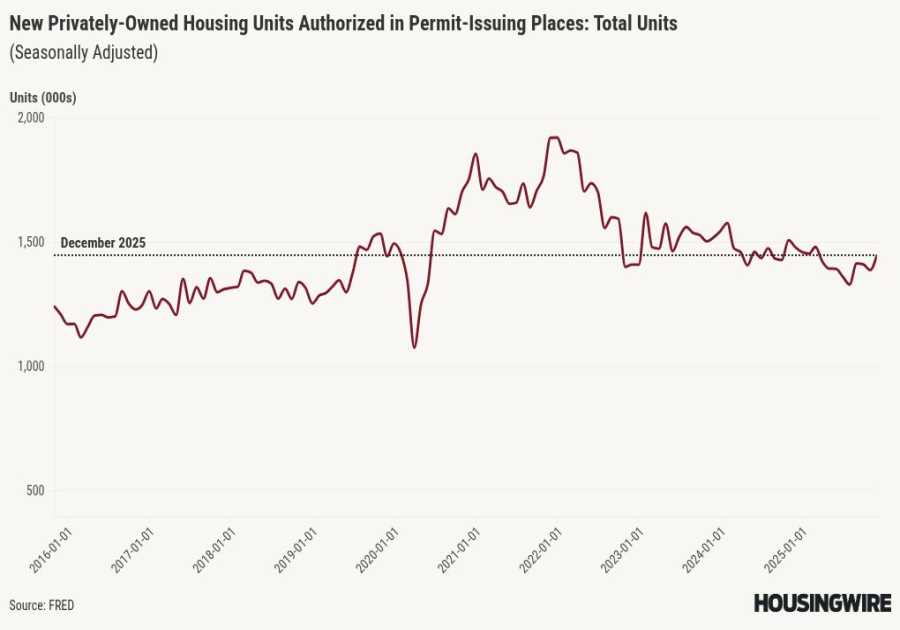Buying a traditional home is an expensive option right now. The median price for an existing single-family home is currently close to $400,000, while the median price of new construction is around $450,000. For many people—even people who thought they were ready just a short time ago—buying a house is impossible right now.
There is one option that might make entering the housing market a possibility even if you’ve been priced out of traditional homes, however: Manufactured homes.
Most houses are built on-site, with construction crews, equipment, and materials brought in. Manufactured homes are built in a factory, either as a single unit or as modular pieces, and shipped whole (or in large pieces) to the land where they will sit. If you’ve ever been on the highway and seen a truck hauling what looked like an entire ranch house on a flatbed with an OVERSIZE LOAD sign, that was a manufactured house being delivered.
These homes used to be called mobile homes, and prior to modern manufacturing processes, they earned their poor reputations. Modern manufactured homes aren’t really meant to be moved more than once, however, and quality has risen—all manufactured homes built after 1976 have to adhere to some strict quality standards. These days a manufactured home is a legitimate option for anyone looking to buy a house. In fact, buying a manufactured home as opposed to a traditionally-built home comes with a few serious benefits—and a few serious downsides.
Upside: Cost
The number one reason to consider a manufactured home is cost. The average cost of a manufactured home is just $128,000. Depending on where you live, that’s very likely orders of magnitude cheaper than a site-built home. Just like a lot of new-build homes in developments, you can typically add on a slew of upgrades to your manufactured home, but even if you splash out and get the largest and most glamorous manufactured home you can find, the price is unlikely to get much higher than $250,000. That’s significantly cheaper than traditionally-built homes.
Downside: Finding land to put it on
On the other hand, once you have your beautiful dream home built in the factory, you have to put it somewhere. Part of the cost of a traditional home sale is the land the house sits on. With a manufactured house that’s a separate transaction, so you’ll have to locate a plot of land you can acquire (through purchase or as a gift), get all the permits and legal paperwork done, run utility and water lines to it, and have a foundation created if you want the home to be permanent.
You can rent land for your home, too—while manufactured homes aren’t meant to be moved around constantly, they can be moved if necessary, so it’s possible to rent space in an area that caters to manufactured homes and have your home placed there. The downside is that you’ll have to pay rent and other costs, and your home’s value may depreciate because it’s not linked to the land under it.
Upside: You can move them (sometimes)
Still, the fact that your home can be moved (as long as you haven’t permanently affixed it to a foundation) is an upside. If you need to relocate to a whole new area, you might not need to sell a house you enjoy living in and have customized to your needs. While packing up an entire house and moving it can be a complex and expensive operation, it will likely be less expensive than buying a new home, and you won’t need to worry about decluttering the place for real estate photos.
Downside: Tougher to finance
- Federal loans. The government offers several loans that can be used for manufactured homes. MH Advantage only applies to certain manufactured homes, but usually requires a down payment of as little as 3%. The CHOICEHome program is an option if you’re using your manufactured home as a primary or secondary residence; this federal loan requires just 5% down. And the Federal Housing Administration (FHA) offers Title I loans that can be used for these homes.
- Chattel loan. If your manufactured home isn’t on a permanent foundation or otherwise doesn’t qualify for one of the loans above, you’ll have to get something like a chattel loan, which is very similar to the loan you take out to buy a car.
- Dealer financing. Some manufactured home companies offer their own financing. These are most likely chattel loans, and as with car loans you should shop around for a better rate if that’s the option you’re going with—but nothing beats dealer financing for convenience.
A final consideration is that manufactured homes that aren’t permanently affixed to a foundation on land you own will tend to depreciate in value, much like a car. That means you might not have much equity in yours, even after you pay off your loan.
Upside: Energy efficiency
Construction of manufactured homes takes advantage of a factory setting and a replicable design and process, resulting in less construction waste. They can also be built to high standards when it comes to energy efficiency. Many manufactured homes are even Energy Star-rated. All this means that you’ll save money on heating and cooling costs, and since these homes tend to be more affordable in the first place, you’ll have more budget runway to upgrade the energy-efficient aspects of your house.
Downside: Limited choices
Manufactured homes may offer fewer options than traditionally-constructed homes. Similar to buying a home from a developer, you may have a limited menu of design choices and features you can choose from, because the home is being built in a factory from a plan, not custom designed for you.
Then, once you have your home, you may run into zoning limitations concerning where you can set it up. This sometimes means only being able to place the home in certain areas, or it might require you to purchase more land than you want—or you might find your only choice is to rent a lot in a designated park area. This could significantly impact the “dream” part of owning your dream home.
This article was written by Jeff Somers from Lifehacker and was legally licensed through the Industry Dive Content Marketplace. Please direct all licensing questions to [email protected].

Read More
By: admin
Title: The Pros and Cons of Buying a Manufactured Home
Sourced From: www.pncrealestatenewsfeed.com/the-pros-and-cons-of-buying-a-manufactured-home/
Published Date: Tue, 22 Nov 2022 19:40:16 +0000
Did you miss our previous article...
https://trendinginbusiness.business/real-estate/a-passive-house-in-maine-is-one-couples-new-start-after-losing-everything-in-a-fire
.png)





